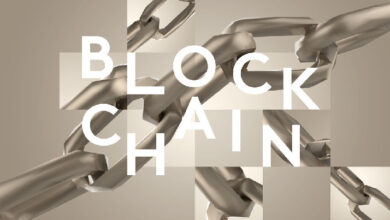Interoperability isn’t just a buzzword

The essence of blockchain has always been about open-source and decentralization, about building something together without any single entity in control.
However, as the ecosystem has expanded, many blockchains have become isolated silos, lacking the infrastructure and capability to communicate with each other. This isolation hinders the true potential of a unified and interconnected blockchain ecosystem, further stressing the importance of cross-chain messaging protocols.
When it comes to blockchains, interoperability is not just a buzzword. It’s a quintessential factor driving the trajectory towards a more connected and inclusive crypto ecosystem. Cross-chain platforms are emerging, facilitating communication between isolated blockchain islands. For blockchain to unlock its full potential, constructing these bridges with an open-source and decentralized ethos is imperative.
Blockchain interoperability alleviates existing challenges by shattering the silos. We have already seen it in action with projects like Pyth Network bringing first party financial data to a growing number of blockchains, as well as the DeGods/Yoots migration from Solana to Ethereum.
But there are still other challenges.
When interoperability is controlled centrally, it typically falls under the purview of a single organization or a consortium of stakeholders with aligned interests. This could be a dominant blockchain company, a group of developers or even a coalition of businesses that have significant investments in a particular blockchain. This can lead to a lack of transparency about how decisions are made and who benefits. Multisig wallets are another massive threat when they rely on a small number of individuals or entities, especially because many bridging protocols incorporate centralized multisig. In fact, improper use of multisig led to a $625 million exploit in 2022.
Venture capital involvement complicates matters as well, with its risk of biased approvals and skewed governance. For example, if a blockchain’s founders, foundation or VC holds the majority of the delegation, then the community vote can end up meaningless. Such practices could sideline the average user, straying away from blockchain’s democratic core and mission to provide an equitable solution that benefits all involved.
Decentralized, open-source interoperability is a beacon of trust in the blockchain landscape. Platforms which openly share their code repositories and implement innovative mechanisms exemplify this trust-building approach, bolstering security in a decentralized environment. In stark contrast, closed-source frameworks pose risks, introducing potential avenues for manipulation and centralization which can substantially hinder innovation.
The open-source ecosystem is the crucible where innovation thrives, underscored by a myriad of success stories in the crypto arena. It’s the community-driven initiatives that morph into assets, crafting a robust and adaptable protocol. They provide a platform for developers and blockchain enthusiasts to collaborate, work on real-world interoperability challenges and learn from each other.
Decentralized protocols are playing their part in this larger narrative, but it’s a collective effort. The call is out for everyone in the blockchain space to join in this mission.
In focusing on the core values of blockchain, we must also recognize and address the hesitations around interoperability. Some protocols may resist this shift, not merely for financial gain (which is a straightforward incentive), but also over concerns in maintaining their established systems and user bases — all factors that contribute to their “hype.” The “hype” here refers to the market excitement that can drive user adoption and investment in a particular blockchain, potentially leading to a reluctance of these protocols to dilute their brand or user experience through interoperability.
Read more from our opinion section: Staking can modernize the Ethereum ETF
There are valid technical and security concerns that come with opening up a system to interact with others, which can be complex and risky to navigate. Some protocols might fear losing control over their governance structures, compromising security or facing increased complexity in operations.
But while such concerns are understandable, it’s crucial to challenge them with the long-term vision of a unified blockchain ecosystem that champions open-source values and collective advancement over individual success.
As we continue to unite more and more of the fragmented blockchain ecosystem, reverting to the core principles of an open, decentralized and collaborative ecosystem isn’t just a choice — it’s a necessity. It’s not just about the technology, but about the ethos that underpins it. The free-flowing crypto economy, devoid of siloed chains, is within reach, but it can only be achieved in the open and with decentralized security.
Robinson Burkey is an EVP at the Wormhole Foundation. Robinson has dedicated nearly a decade to leading growth and go-to-market strategies for startups, including almost two years in the crypto industry. Previously, Robinson served as an early employee at HealthCrowd until their successful exit, after which he made the decision to join DoorDash as an early leader. Prior to joining Wormhole, he led Business Development and Ecosystem efforts at Acala in the Polkadot ecosystem.





